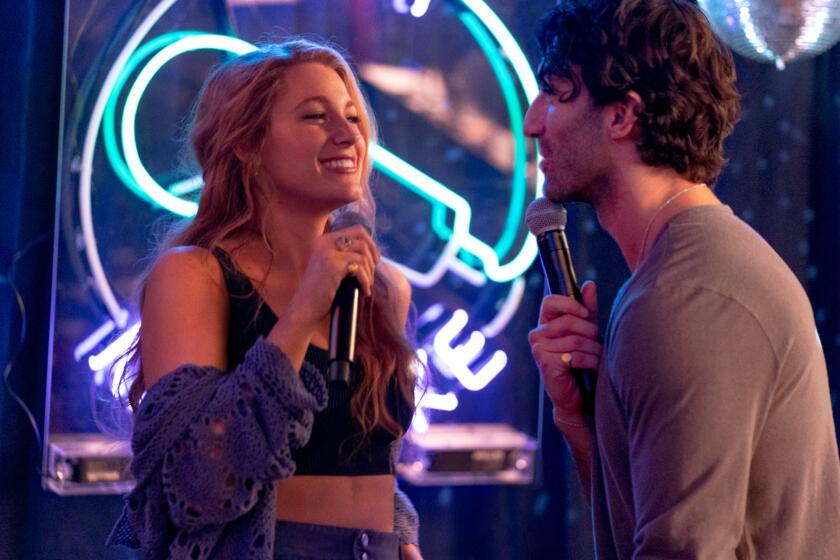More than a movie
THE FILM “UNITED 93” OPENED to large audiences over the weekend despite its sobering subject: the hijacking on Sept. 11, 2001, of a United Airlines flight that crashed into a Pennsylvania meadow instead of the U.S. Capitol after a heroic passenger revolt. The film is gripping and well made but also disturbing -- not just for what it portrays but for what it represents.
Some filmgoers went in response to reviews of the picture as absorbing, accurate in almost a documentary fashion and devoid of Hollywood histrionics. Others, according to a story in Monday’s Times, were impressed that “United 93” had received the seal of approval from relatives of the flight’s victims.
It didn’t take the release of this film for 9/11 families to find their voice in the public conversation about that awful day and its aftermath. Family members have criticized plans for a proposed 9/11 memorial at the site of the World Trade Center, campaigned for the creation of an independent commission to investigate intelligence failures on 9/11 and lobbied Congress to adopt that panel’s recommendations. They are courted and deferred to by elected officials and talk-show hosts alike. (An early movie trailer for “United 93” was withdrawn from some theaters after some family members objected.)
The families of 9/11 victims certainly suffered more deeply that day than the rest of us. Like all citizens, they have a right to lobby their elected representatives and to offer advice about how matters important to them should be portrayed in the media. But the notion that the families are the final authority on the meaning of -- or the response to -- 9/11 privatizes what was a public calamity.
To be fair, redefining crime and punishment as a private matter did not begin with the 9/11 families. For several years, victims’ rights groups have lobbied for an amendment to the Constitution that would give crime victims and their families the right to attend trials and address juries (privileges they already have under state and federal law). Meanwhile, the Supreme Court has ruled that juries in death penalty cases can be presented with “victim impact” evidence such as the moral uprightness of the victim or the loss felt by family members.
So it’s not surprising that federal prosecutors in the trial of Zacarias Moussaoui, who pleaded guilty to conspiracy in the 9/11 attacks, played for the jury the cockpit recording from Flight 93. Or that defense lawyers countered by calling as witnesses 9/11 family members who do not favor Moussaoui’s execution.
The problem with making “victim impact” the measure of a crime is that it ignores an overriding principle of U.S. law: that prosecutions are brought in the name of the whole community, not on behalf of individual victims or their grieving relatives. Preserving that principle is especially important when it comes to 9/11, when the victims were targeted not because of who they were but because of what they were.
The growing influence of victims, in the law as well as the culture, is a trend that predates and will outlast “United 93.” And the movie stands on its own as drama. But no work of art -- or movie -- can be divorced from the context in which it was made, and the context of “United 93” is disturbing.
More to Read
Only good movies
Get the Indie Focus newsletter, Mark Olsen's weekly guide to the world of cinema.
You may occasionally receive promotional content from the Los Angeles Times.







